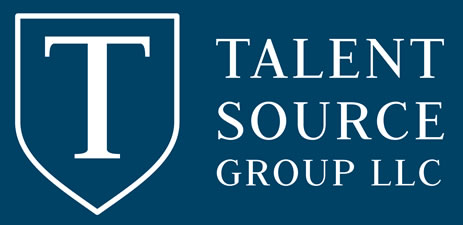How To Improve The Interview Process To Attract Top Tier Talent In A Highly Competitive Market
In a tight hiring market like the one we are currently experiencing, companies who seek accounting and finance talent are looking for an edge wherever they can find it. Talent Source Group LLC (TSG) believes a dynamic interview process is the best way to establish that advantage.
The standard interview process looks something like this: Screen candidates through phone interviews. Invite the most promising ones in for an interview with the hiring manager and direct boss. Then invite the cream of the crop back for a final round of meetings.
That approach is straightforward, but it’s also uninspiring. Let’s face it – well-tracked accounting and finance professionals have a lot of options today. It’s highly likely that a candidate you plan to interview is also speaking to your competitors.
Interviewing is an art form, especially if you’re the interviewer. Rather than follow the old playbook, TSG encourages clients to really give thought to how they interview.
Here are 5 tips on how to improve your interview process:
1. Think strategically about who needs to be in the room.
Assemble a panel of interviewees who absolutely need to meet this person. The hiring manager and direct supervisor go without saying. But consider including some of the candidate’s potential colleagues as well. Who will they be supporting in this role? Their peers know the type of person who will perform well on their team, so they’ll ask insightful questions that reveal whether the candidate is a good fit.
2. Schedule conversational interviews with their peers.
In addition to including peers in the initial meeting, create opportunities for the candidate to meet colleagues in less formal settings. Send them out for coffee or lunch with their prospective co-workers so they can ask questions and develop a rapport with the team. Then survey the staff members who were at the lunch for their opinion on the candidate. What are their impressions? Did the candidate’s personality gel with the team? Did they ask interesting questions? Were there any red flags? Their feedback could prove useful in your hiring decision.
Invite someone who worked in the department previously but has since rolled out to another part of the organization. They can talk about their experiences across departments and why they made the move, giving the candidate further insight into the organization. It’s important to show potential candidates that there is life after the role they are interviewing for.
3. Show off your facility.
Nothing dulls people’s enthusiasm like cold, lifeless conference rooms and stale coffee. Consider conducting meetings in open-air settings and other friendly environments.
Even if your campus is small, showcase its best features and amenities. Don’t cloister candidates in a single room; let them get the feel of the place. If you have a cafeteria, invite them to grab a bite to eat. Take a walk around the building to help them feel more comfortable in the environment. The goal is to help them forget they’re in an interview. People are more likely to give authentic answers when they don’t feel like they’re being interrogated.
4. Pinch Hitters.
Plan the meetings carefully, and assign “pinch hitters” who can step in if someone gets called out for a last minute meeting. The details must be in place well before the interview date because canceling could cost you an excellent candidate.
5. Shorten your turnaround time on feedback and offers.
TSG highly recommends getting feedback to the candidate as soon as possible. Remember, they have options so building momentum and mutual interest is crucial.
Extend offers within a maximum of two-three days after the final interview. Some companies present offers within one business day, which is commendable. But two-three days falls within the expected timeframe, so candidates are unlikely to become skittish if you connect within 48 hours. However, any longer is pushing it. People start questioning their qualifications and whether the job is the right fit, and they may start looking elsewhere.
Candidates tend to be most excited about whichever company they saw last, so you want to act as quickly as possible. You don’t want them taking a final round interview with another company while you scramble to put together an offer. Even a verbal commitment will suffice if you need time to organize the paperwork. The point is to demonstrate progress toward an official hire.
Companies that act the quickest, acquire the best talent.
